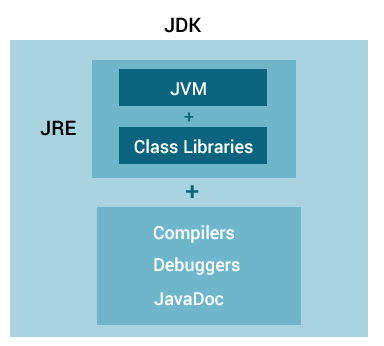Java JDK, JRE and JVM
What is JVM?
JVM (Java Virtual Machine) is an abstract machine that allows your computer to run a Java program.
When you run the Java program, the Java compiler first compiles your Java code into bytecode. Then, the JVM translates the bytecode into native machine code (a set of instructions that a computer's processor executes directly).
Java is a platform independent language. This is because when you write Java code, it is ultimately written for JVM but not for your physical machine (computer). Because JVM runs Java bytecode which is platform independent, Java is platform independent.

What is JRE?
JRE (Java Runtime Environment) is a software package that provides Java class libraries, a Java Virtual Machine (JVM), and other components required to run Java applications.
JRE is the superset of JVM.
What is JDK?

Relationship between JVM, JRE and JDK.


Comments
Post a Comment